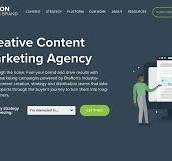Unlocking Success: The Impact of PR Consulting Firms on Business Growth
The Role of PR Consulting Firms in Today’s Business Landscape
Public Relations (PR) consulting firms play a crucial role in helping businesses navigate the complex world of communication and reputation management. In today’s fast-paced and competitive business landscape, the need for effective PR strategies has never been greater.
PR consulting firms are experts in crafting compelling narratives, building strong relationships with the media, managing crisis communication, and enhancing brand reputation. They work closely with businesses to develop tailored communication strategies that resonate with their target audience and achieve their goals.
One of the key benefits of working with a PR consulting firm is their industry expertise and extensive network. These firms have a deep understanding of various sectors and can provide valuable insights that help businesses stand out in a crowded market. By leveraging their knowledge and connections, PR consulting firms can secure media coverage, build thought leadership, and create engaging content that captures the attention of key stakeholders.
Furthermore, PR consulting firms are skilled at managing reputation risks and handling crisis situations effectively. In today’s digital age where news spreads rapidly on social media, having a proactive crisis communication strategy is essential. PR consulting firms can help businesses anticipate potential issues, develop response plans, and mitigate reputational damage during challenging times.
Overall, PR consulting firms play a vital role in shaping public perception, enhancing brand credibility, and driving business growth. Their strategic approach to communication enables businesses to build trust with their audience, differentiate themselves from competitors, and achieve long-term success in today’s competitive business environment.
If your business is looking to enhance its communication strategies, consider partnering with a reputable PR consulting firm to unlock new opportunities and take your brand to the next level.
Understanding PR Consulting Firms: Services, Benefits, and Industry Insights
- What services do PR consulting firms offer?
- How can PR consulting firms help businesses improve their brand reputation?
- What are the key benefits of hiring a PR consulting firm?
- How do PR consulting firms measure the success of their strategies?
- What industries do PR consulting firms typically work with?
What services do PR consulting firms offer?
PR consulting firms offer a range of services tailored to help businesses effectively manage their communication and reputation. These services typically include strategic communication planning, media relations, crisis management, content creation, social media strategy, thought leadership development, event management, and stakeholder engagement. PR consulting firms work closely with clients to understand their specific needs and objectives, developing customised strategies that align with their brand identity and target audience. By leveraging their expertise and industry knowledge, PR consulting firms help businesses enhance their visibility, build credibility, and establish strong relationships with key stakeholders in today’s competitive business landscape.
How can PR consulting firms help businesses improve their brand reputation?
PR consulting firms play a pivotal role in helping businesses enhance their brand reputation through strategic communication initiatives. These firms leverage their expertise in crafting compelling narratives, building strong media relationships, and implementing targeted PR campaigns to shape positive public perception. By developing tailored communication strategies that align with the brand’s values and objectives, PR consulting firms can effectively convey key messages to the target audience, establish thought leadership, and manage reputation risks proactively. Through their industry knowledge and experience, PR consulting firms help businesses navigate challenges, seize opportunities, and ultimately strengthen their brand reputation in today’s competitive market landscape.
What are the key benefits of hiring a PR consulting firm?
When considering the key benefits of hiring a PR consulting firm, businesses can expect to gain access to expert industry knowledge and strategic guidance that can elevate their communication efforts. PR consulting firms bring a wealth of experience in crafting compelling narratives, building strong media relationships, managing crisis communication effectively, and enhancing brand reputation. By leveraging their expertise and network, businesses can secure valuable media coverage, establish thought leadership, and engage with their target audience in a meaningful way. Additionally, PR consulting firms provide a proactive approach to reputation management, helping businesses anticipate and navigate potential risks while maintaining a positive brand image. Overall, partnering with a PR consulting firm can empower businesses to enhance their credibility, differentiate themselves in the market, and achieve tangible results in today’s competitive business landscape.
How do PR consulting firms measure the success of their strategies?
PR consulting firms employ various metrics and key performance indicators (KPIs) to measure the success of their strategies. These may include media coverage, brand mentions, audience engagement, website traffic, social media interactions, and sentiment analysis. By tracking these metrics, PR consulting firms can assess the impact of their campaigns, evaluate the reach and resonance of their messages, and determine the overall effectiveness of their communication strategies. Additionally, they may conduct surveys, interviews, and focus groups to gather qualitative feedback and insights from stakeholders. Through a combination of quantitative data and qualitative feedback, PR consulting firms can gauge the success of their strategies and make informed decisions to continually improve and refine their approach.
What industries do PR consulting firms typically work with?
PR consulting firms typically work with a wide range of industries, including technology, healthcare, finance, consumer goods, hospitality, and more. These firms have the expertise to adapt their communication strategies to suit the unique needs and challenges of each industry they serve. Whether it’s generating media coverage for a tech startup, managing crisis communication for a healthcare provider, or building brand reputation for a financial institution, PR consulting firms are equipped to support businesses across various sectors in achieving their communication goals. Their industry knowledge and experience enable them to create tailored PR campaigns that resonate with target audiences and drive business success.








